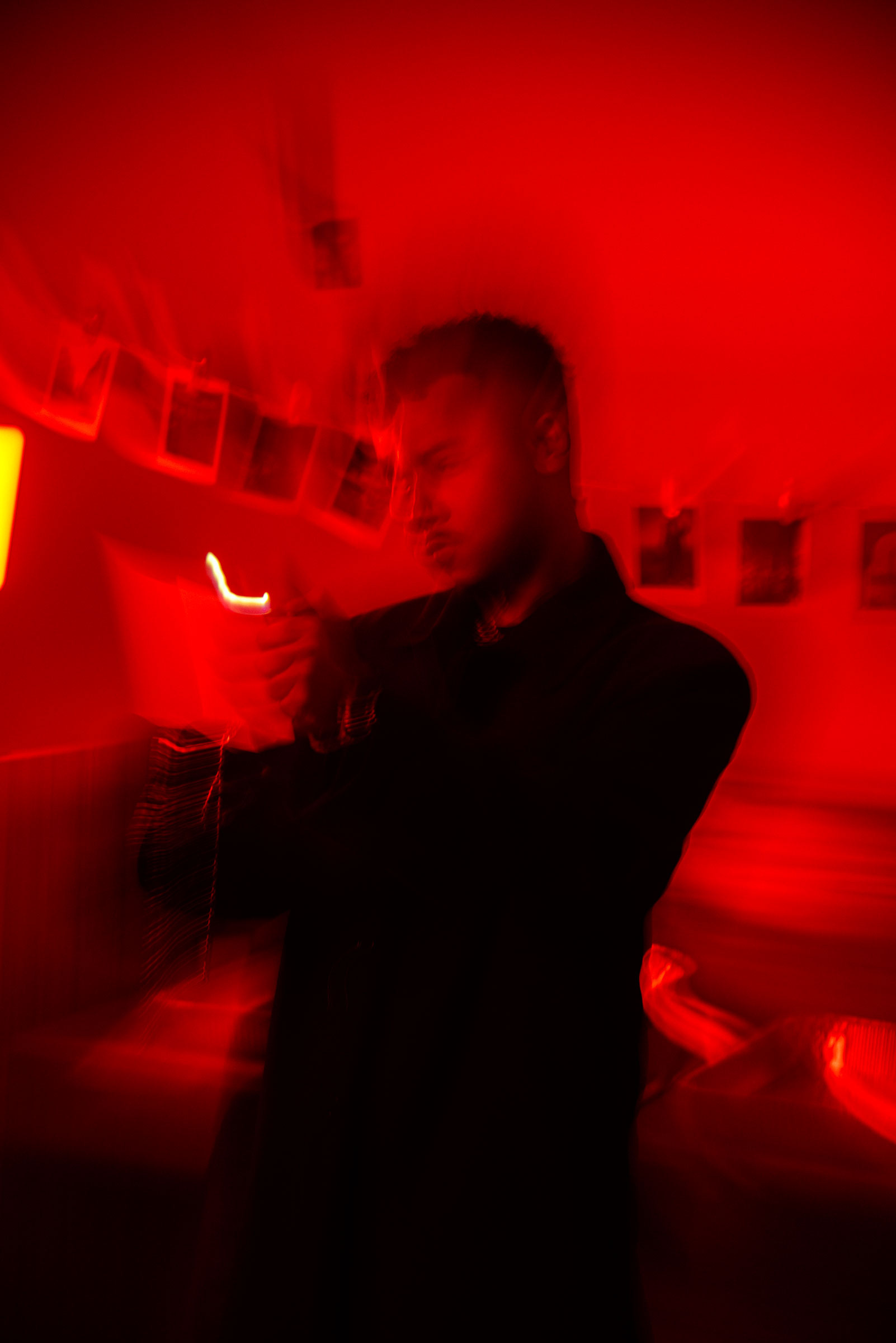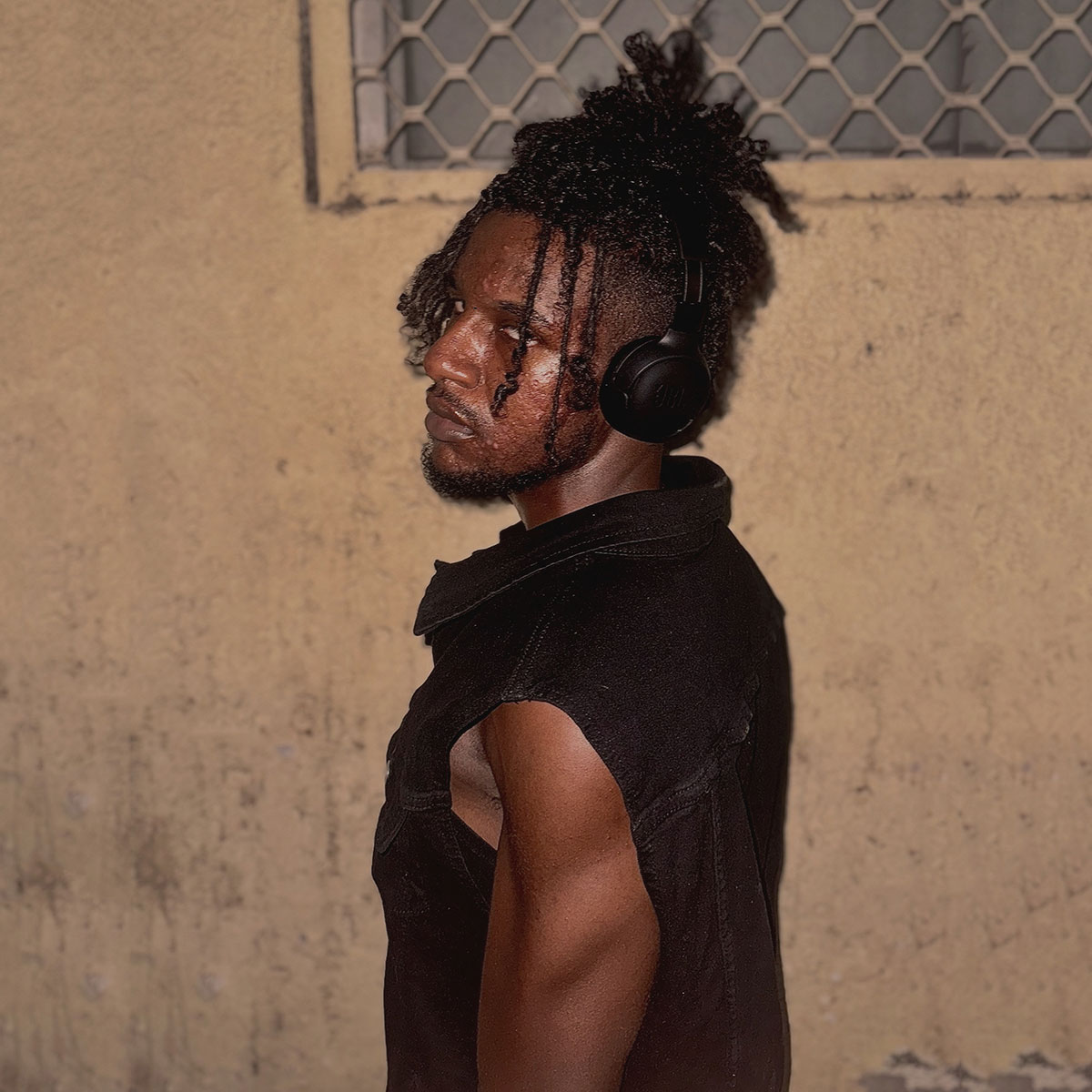Like a photographer alone in a darkroom, developing film under the slow burn of red light, ILL-X spent his early years coaxing raw sound into something finished, something real.
Each track, like each photo, began as a blurry impression—unformed, uncertain. But he kept at it. Layer by layer, adjustment by adjustment, his vision came into focus. There were no filters, no shortcuts—just time, instinct, and the kind of trial-and-error that can’t be faked. That discipline, not viral luck, is how ILL-X learned to build his music.

By all accounts, ILL-X should be doing something more respectable—perhaps quietly uploading English-language remixes of TikTok hits from his bedroom, chasing the algorithm like a good, compliant digital native. Instead, he’s busy forging an unapologetic sonic identity rooted in trap, Arabic lyricism, and a refusal to perform cultural contortionism for mainstream approval.
This Cairo-based rapper and producer isn’t here to please everyone, nor does he try.
“I truly believe Arab artists should lean into their own culture rather than imitate others,” he says flatly.
It’s a sharp pivot from the norm in regional hip-hop scenes that often look westward for approval. And while his work does bear influences from the Atlanta trap sound, ILL-X’s music emerges salva veritate—preserving its internal truth even as it translates into the global soundscape.
His new project, Naar, meaning “fire,” took three months to complete. That’s an eternity in the age of hyper-speed releases and algorithm-chasing EPs. The upcoming track is rage-rap—rowdy, electric, and emotionally charged—but to ILL-X, it’s more than just a sonic experiment. “It truly represents where I am now—both musically and personally,” he says.
That sense of self-possession didn’t come from nowhere. At 14, armed only with headphones and a cracked copy of FL Studio, he began making beats and learning autotune by trial and error. “I spent countless hours trying to make beats—downloading packs and VSTs—yet never releasing a single track,” he admits. There’s a quiet clarity in that recollection. No drama. No glorification. Just a kid obsessed with sound.
He sees his musical journey less as a career trajectory and more like an artistic accumulation of moments—each song a checkpoint in a longer path of personal and technical evolution. “There’s a clear progression in my work—from Zigzag to 3youn,” he says. The former, released in 2021, had raw charm but flawed audio quality. By the time 3youn dropped, technical precision had caught up with artistic intent. That’s the de facto story of ILL-X: relentless iteration without fanfare.
Then there’s 3ann, another track that pushed his self-coined “supertrap” sound. It wasn’t born out of industry strategy, but peer pressure. “Many of my friends had been asking for it, so I took the opportunity to dive into that space,” he says. There’s a kind of shrugging honesty to that motivation, like a scientist reluctantly giving in to peer review before blowing up the lab anyway.

Statistically speaking, he’s swimming against the current. According to the International Federation of the Phonographic Industry (IFPI), Arabic music accounted for less than 1% of global music consumption in 2023. That makes ILL-X’s insistence on rapping only in Arabic not just a personal stance, but a political one. “Our language, our identity—it deserves more respect,” he says. It’s a creative act of resistance.
And resistance runs deeper in his work than genre choices or language preference. Take “I Know,” a collaboration with Oakland rapper Rob Woods, whom ILL-X met while incarcerated. Yes, incarcerated—although he doesn’t linger on it or use it as a branding angle. “That shared experience influenced the song’s message and our creative synergy,” he says, sidestepping the trauma-bait that often defines stories like his. The track addresses mental health, trauma, and self-reflection. But don’t mistake that for a pity anthem. It’s gritty, not soft. Raw, not therapeutic.
Unlike many artists who turn to live performances to build clout, ILL-X has deliberately delayed his debut. “I haven’t performed live yet, because I’m aiming for something much bigger,” he says. Arena-level ambition, without the obligatory dive bar slog. He turned down two concert opportunities in Egypt in the last two years. “Right now, I’m focused on expanding my reach and building a larger audience,” he says. He leans on having control.
His sound is not easily definable, and that’s by design. Although he has a deep appreciation for Afrobeats, his loyalty lies with trap. The connection to Afrobeats, however, is personal.
“Afrobeats feel more personally identifiable because I’m Nubian,” he explains.
For him, Afrobeats isn't an exotic export—it’s a sonic reminder of who he is and where he comes from.
That identity tension—Afrobeats as cultural familiarity and trap as emotional outlet—is the core of ILL-X’s artistry. “Trap music captures the raw essence of my personality,” he says. That doesn’t mean he merges them into a hybrid sound. Instead, he switches lanes depending on the emotional intent of a track. Think Donald Glover toggling between Troy Barnes and Childish Gambino, except there’s no mask—only modulation.
Navigating these cultural and musical crossroads requires more than talent. It demands clarity and conviction. And while ILL-X doesn’t claim to represent a movement, he knows his decisions ripple through a scene still figuring itself out.
His story is more analog than digital—slow, iterative, and personal. It’s not about viral fame or content cycles. It’s about refining one’s sound until it actually sounds like you. His process? A bit like sculpting from marble: subtractive, deliberate, and resistant to shortcuts.

This self-imposed discipline, combined with a refusal to compromise language, genre, or identity, makes ILL-X not an iconoclast, but a realist in a delusional industry. He doesn’t promise catharsis. He offers clarity. And when he says, “My mission is to elevate Arabic and make it just as powerful and influential in music as any other global language,” it doesn’t sound like a pitch—it sounds like a deadline.
His music might still be bubbling beneath the radar of mainstream platforms, but it's only a matter of time before those platforms start calling him. Whether or not he answers is another matter.
Because let’s face it—who wouldn’t want to turn down an industry that still thinks slapping a darbuka on a beat makes it “Middle Eastern inspired”?
Like those quiet moments in the red room when a photograph finally sharpens into life, ILL-X’s music isn’t loud by default—it becomes powerful through process. And when the image finally emerges, it doesn’t scream for attention. It just stares back, finished, undeniable.

REGIONAL is musivv’s segment featuring Arab artists in the Middle East. Features under this segment are considered as submissions for nomination under this category in the Musivv Awards’ annual recognition.














